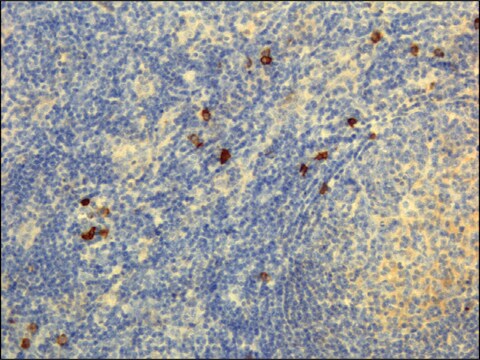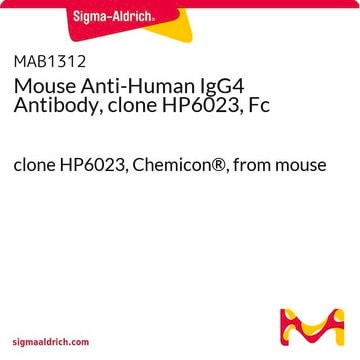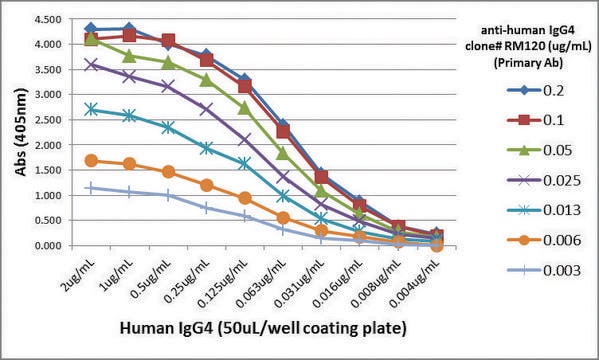I7385
Monoclonal Anti-Human IgG4 antibody produced in mouse
clone HP-6025, ascites fluid
Sinónimos:
Monoclonal Anti-Human IgG4
About This Item
Productos recomendados
biological source
mouse
Quality Level
conjugate
unconjugated
antibody form
ascites fluid
antibody product type
secondary antibodies
clone
HP-6025, monoclonal
contains
15 mM sodium azide
technique(s)
immunofluorescence: suitable
indirect ELISA: 1:5,000
isotype
IgG1
shipped in
dry ice
storage temp.
−20°C
target post-translational modification
unmodified
¿Está buscando productos similares? Visita Guía de comparación de productos
General description
Specificity
Application
Biochem/physiol Actions
Disclaimer
¿No encuentra el producto adecuado?
Pruebe nuestro Herramienta de selección de productos.
Storage Class
10 - Combustible liquids
wgk_germany
nwg
flash_point_f
Not applicable
flash_point_c
Not applicable
Certificados de análisis (COA)
Busque Certificados de análisis (COA) introduciendo el número de lote del producto. Los números de lote se encuentran en la etiqueta del producto después de las palabras «Lot» o «Batch»
¿Ya tiene este producto?
Encuentre la documentación para los productos que ha comprado recientemente en la Biblioteca de documentos.
Los clientes también vieron
Nuestro equipo de científicos tiene experiencia en todas las áreas de investigación: Ciencias de la vida, Ciencia de los materiales, Síntesis química, Cromatografía, Analítica y muchas otras.
Póngase en contacto con el Servicio técnico














